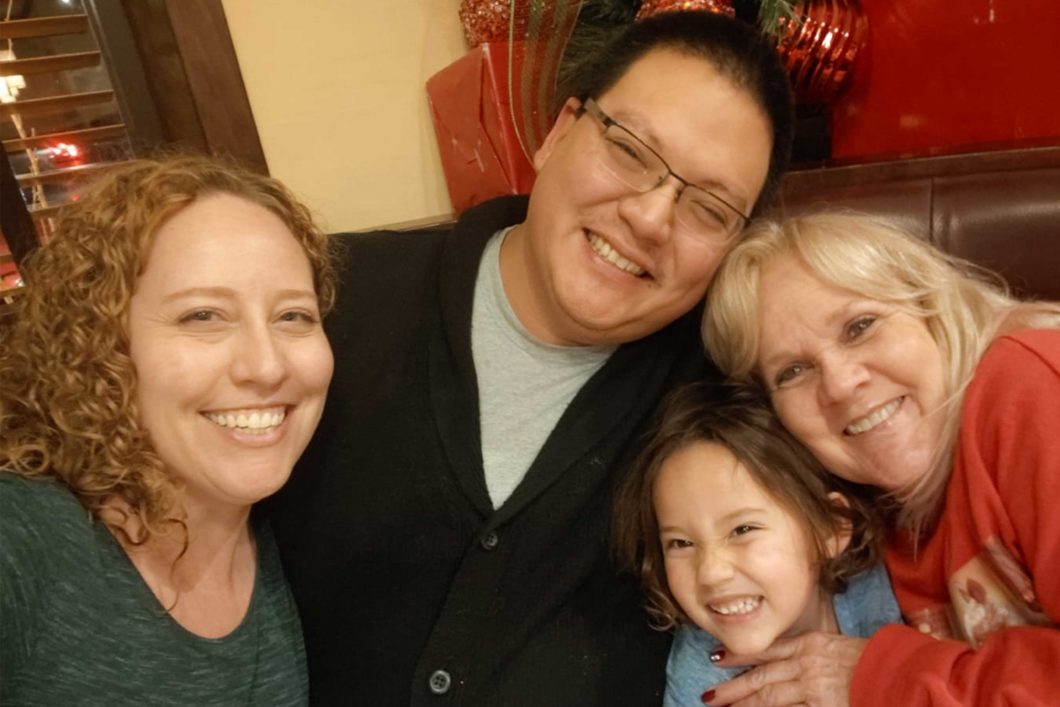As an army veteran and former opera performer, Marland Chang’s professional dreams have changed throughout the years. But each experience has led him down the path to becoming an SLP . . . and each will come in handy when it comes time to pursuing his dream of counseling clients with voice disorders and TBI in the military setting.
Quick Facts about Marland
- Currently pursuing CSD at the University of Rhode Island
- Aspires to pursue a PhD, work in the areas of voice and TBI recovery, and create a vocal training program for military drill instructors
- Works part-time as a standardized patient at Brown University’s Medical School
- Wife, Megan; daughter, Emma (4)
- National NSSLHA member for 2 years; 2020-2021 Student State Officer (SLP) in Rhode Island
What Inspired You to Shift from Opera Performance to Speech-Language Pathology?
While studying opera performance at Wichita State University, I joined the Army in my junior year (2007) with the hopes of auditioning for the Army Chorus. Things took an unexpected turn when I was deployed to Afghanistan and injured during my service. The injury resulted in nerve damage, which hinders my ability to fully control my breathing while singing.
In 2018, I found the vocational rehabilitation program through the U.S. Department of Veterans Affairs (VA) and was offered a second chance to return to school. Coincidently, my wife (who teaches voice for theatre and film, with a specialty in accents and dialects) encouraged me to pursue a career in vocal therapy to assist professionals who have injured or damaged their voices. This led me to CSD, which has exposed me to the numerous applications and fields surrounding speech, language, and hearing.
Do You Still Perform Vocally?
Not anymore—although, I do sing to my daughter every night at bedtime! Since I’m not able to perform professionally, I do have other creative outlets . . .
I occasionally work as a standardized patient (SP) with medical students at Brown University. As an SP, I use a case study to create a realistic character with behaviors and emotions that challenge the medical students in each scenario. I help them practice their bedside manner in subjects like trauma-informed care, end-of-life care, delivering bad news, intimate partner violence, and other emotionally charged situations a physician might encounter.
Building the point of view from the patient allows me to have more empathy for real encounters and it’s been a great opportunity to develop those much needed emotional and counseling skills.
What Motivates You to Continue Along Your CSD Journey?
I love to learn and am intellectually curious. In addition to voice disorders, I’ve taken interests in cultural linguistics, language development, and neuroscience. I was able to work in a research lab studying brain-computer interfaces for alternative augmented communication and analyzing brain waves and language.
There’s something about that eureka moment—when everything makes sense—that is utterly satisfying!
What are Your Professional Dreams?
My professional goal is to work in the area of voice disorders and TBI recovery for the VA or with the military. I’d also like to pursue a PhD and teach CSD while researching military culture and language. I’d love to create a vocal training program to teach drill instructors how to properly use their voice without permanently damaging their vocal cords.
I also have a personal goal of providing guidance and understanding of military benefits to veterans wanting to return to school and creating a certification program for non-veterans who wish to work with veteran populations outside of the VA system.
How has National NSSLHA Membership Supported You and Your CSD Goals?
National NSSLHA membership has allowed me to connect with peers across the country, and access resources and leadership opportunities that wouldn’t normally be available to me.
I’ve especially appreciated the opportunity to serve as National NSSLHA’s Student State Officer (SLP) in Rhode Island. Serving as an SSO has provided me with leadership experience, exposure to advocacy initiatives, and the opportunity to build my network with CSD students in my state and region. Collaborating during the pandemic has shown me how to work together in an organized and goal-oriented way that I’m sure will carry over into my future professional work as an SLP.

